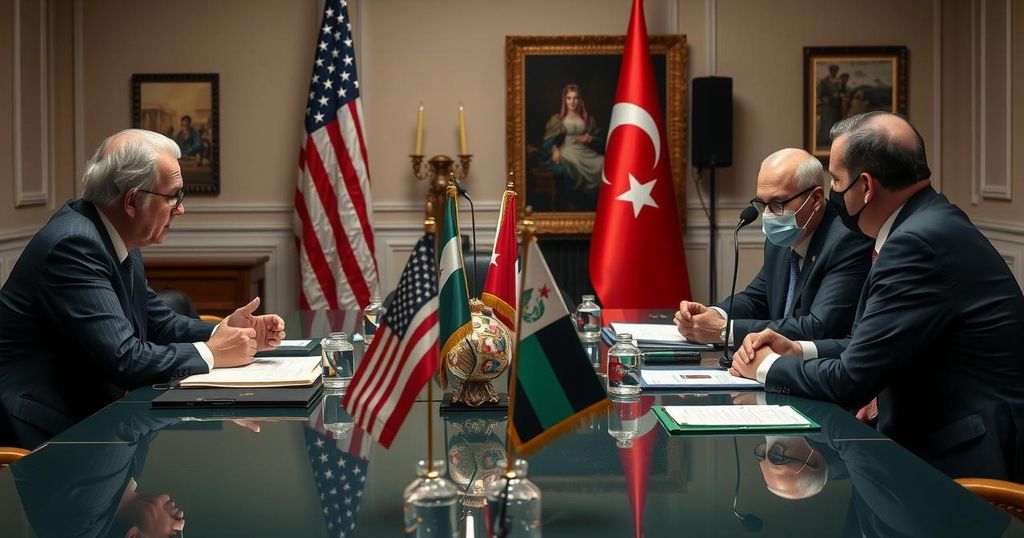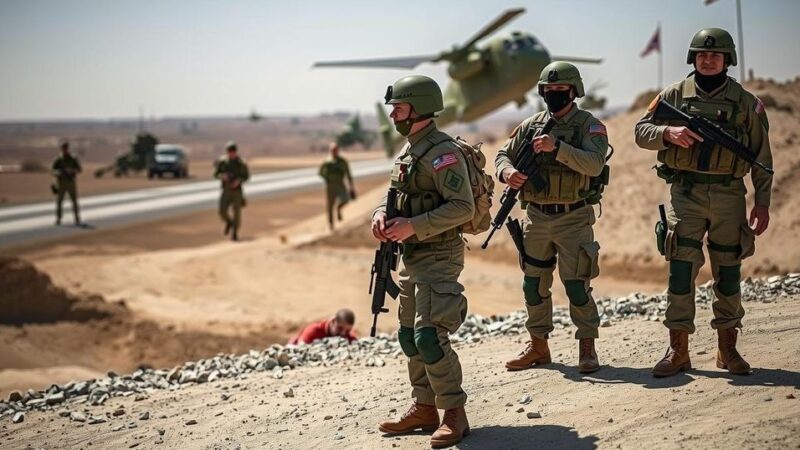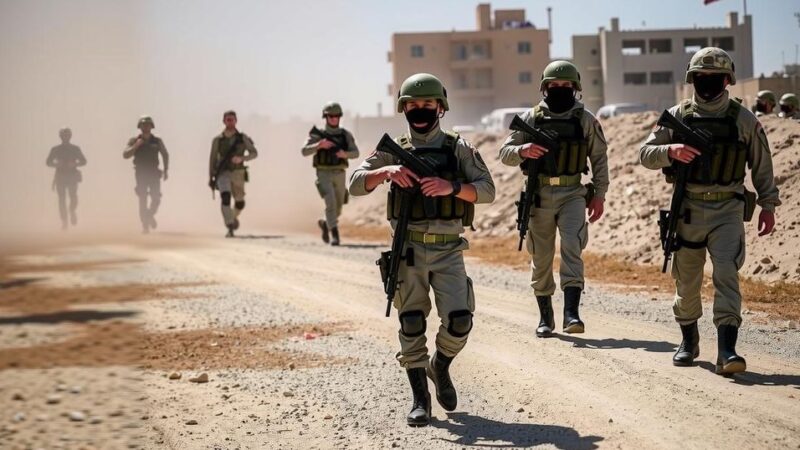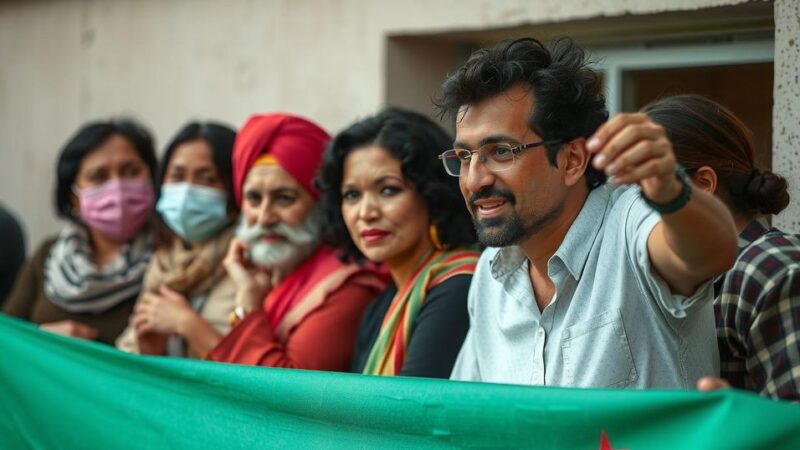Diplomats from the U.S., Arab League, and Turkey convened in Jordan to discuss Syria’s transition following the fall of Bashar Assad’s government. U.S. Secretary of State Antony Blinken led discussions on establishing an inclusive government while addressing regional instability exacerbated by the ongoing Israel-Hamas conflict. Turkey reopened its embassy in Syria, marking diplomatic shifts in the region. The urgent need for a coordinated response to Syria’s humanitarian crisis and political reconstruction was emphasized by several officials.
In recent discussions held in Jordan, top diplomats from the United States, the Arab League, and Turkey convened to address the significant implications of Syria’s transition following the recent downfall of Bashar Assad’s regime. U.S. Secretary of State Antony Blinken participated alongside foreign ministers and senior officials from the European Union and United Nations in an attempt to establish a consensus on the priorities of Syria’s new leadership, with no representation from Syrian officials at the meeting.
The abrupt end to over fifty years of Assad family governance has raised concerns regarding regional stability, particularly in light of ongoing tensions stemming from the Israel-Hamas conflict and the ongoing hostilities involving Hezbollah. Furthermore, the humanitarian crisis in Gaza worsens, as U.S. officials advocate for effectively managing a ceasefire agreement.
Reports indicate significant casualties due to recent Israeli airstrikes in Gaza, with Palestinian medical sources citing at least ten deaths following a strike on a municipal gathering in Deir al-Balah. Tragically, among the deceased were a mother and her young daughter. In a significant diplomatic move, Turkey reestablished its embassy in Syria, marking it as the first nation to formalize relations since Assad’s government fell, with the Turkish flag now hoisted in Damascus after a diplomatic hiatus since 2012.
During the discussions, Secretary Blinken emphasized the shared understanding among regional actors regarding the need for an inclusive Syrian government that respects the rights of women and minorities, works against terrorism, and addresses the legacy of chemical weapons under the Assad regime. He expressed optimism about a Syrian-led transition that involves the United Nations in crucial humanitarian efforts. Similarly, U.N. Special Envoy Geir Pedersen reiterated the importance of an inclusive political process to stabilize the country, urging for the swift delivery of humanitarian assistance to affected populations.
The Jordanian Foreign Ministry underscored the commitment to a comprehensive political strategy that centers on a Syrian-led initiative aimed at the reconstruction of governmental structures while maintaining the unity and sovereignty of Syria, along with safeguarding the rights of its citizens.
The recent downfall of Bashar Assad’s government represents a pivotal moment for Syria, altering the geopolitical landscape of the Middle East. For over fifty years, the Assad regime had maintained control, but its collapse has triggered new discussions among regional and international forces regarding the future of Syria. Concerns are heightened by the ongoing humanitarian crisis in Gaza and potential spillover effects in neighboring regions, making diplomatic efforts crucial in achieving a stable transition.
The diplomatic meeting in Jordan marks an essential step in addressing the future of Syria following the fall of Assad’s regime. A collaborative approach among the United States, the Arab League, and Turkey aims to foster a political process that emphasizes inclusivity and human rights while tackling pressing humanitarian issues. The ongoing conflicts in Gaza and the reopening of Turkey’s embassy in Syria illustrate the complex interrelations at play as stakeholders navigate avenues for stability and humanitarian assistance in a volatile region.
Original Source: abcnews.go.com







